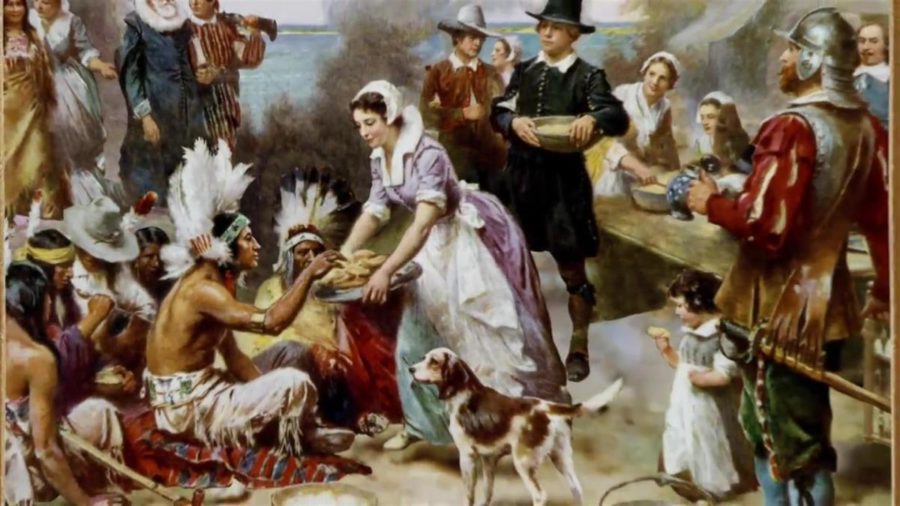Origins of Thanksgiving and whether it should be taught differently
November 20, 2018
Lots of children grew up with the story that English settlers and Native Americans came together and celebrated the first Thanksgiving with a joyous feast, but what they don’t discuss are the darker origins of the holiday. Focusing on some fallacies could give people a false interpretation on the rather dark holiday.
What are the dark origins? As English settlers came into the New World, they tried asserting their dominance over the Native Americans. Later on, the new leader of the Native American tribe sent out a series of raids against the English, due to some of his men being murdered. This sparked an extremely bloody war, where full cities were burnt down and people were taken hostage. The colonists then ended by beheading the leader of the Natives and hanging his head on a pole in Plymouth for 25 years.
As described, the origins are pretty dark, which is why schools focus on whitewashed stories and fun parts of the holiday. The article “The Thanksgiving myth: reflecting on land theft, betrayal and genocide” shows both what is taught to kids and what the real history is. Solon High School History teachers Karen Smith, Robert Rivera and Jane Langston discuss the impact of the holiday and if it should be taught in schools accurately.
Both Rivera and Langston talk about teaching Thanksgiving in an age appropriate way, depending on the grade and how well students are able to comprehend the material.
“Earlier grades can celebrate the positive aspects of the event and the themes of gratitude and family,” Rivera said. “For older students we can discuss and analyze the authentic nature of how Native Americans were treated and what we can learn from this period in our history.”
Rivera also believes that accuracy is just as important.
“Accuracy absolutely counts,” Rivera notes. “But the caveat is that it should be age and grade appropriate.”
Langston also says that students can make their opinions about the holiday as they get older, which is why she thinks it should be taught accurately.
“As you get older, you begin to form your own conclusions and viewpoints based on different types of evidence,” Langston discusses. “That is why we study history.”
Smith also agrees with Rivera and Langston, and that it is important for students to know the history.
“I think that it needs to be taught accurately in schools,” Smith says. “It is an important conversation to present to students and discuss the realities of the events that took place and how it had devastating consequences.”
Smith believes that what is taught in schools is a reason students are unaware and uneducated on the dark parts of Thanksgiving, and that schools should do a better job of teaching this.
“American curriculums and schools need to use their platform and educate students on the wrongs just as equally as the rights,” Smith said.
The darker story of Thanksgiving is rather gory, but the SHS History teachers still believe it should be taught accurately throughout schools.

